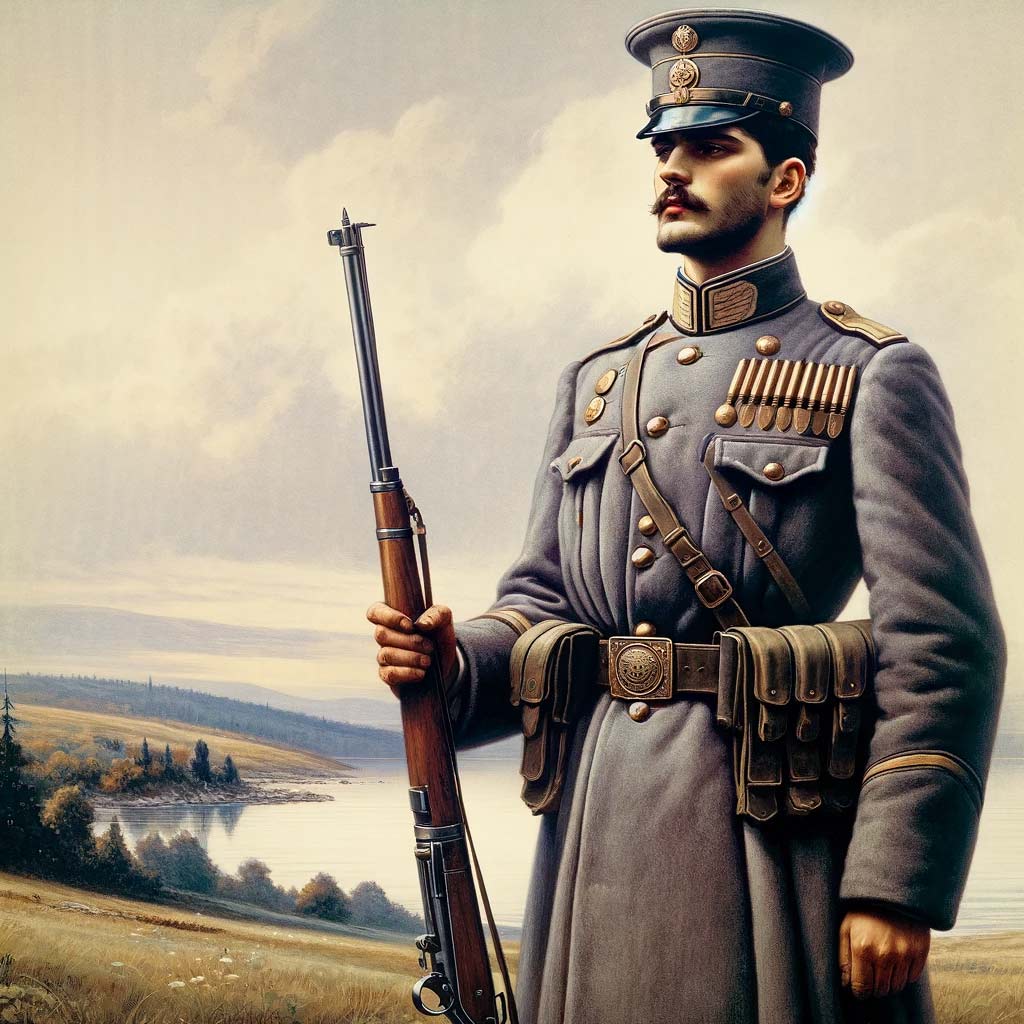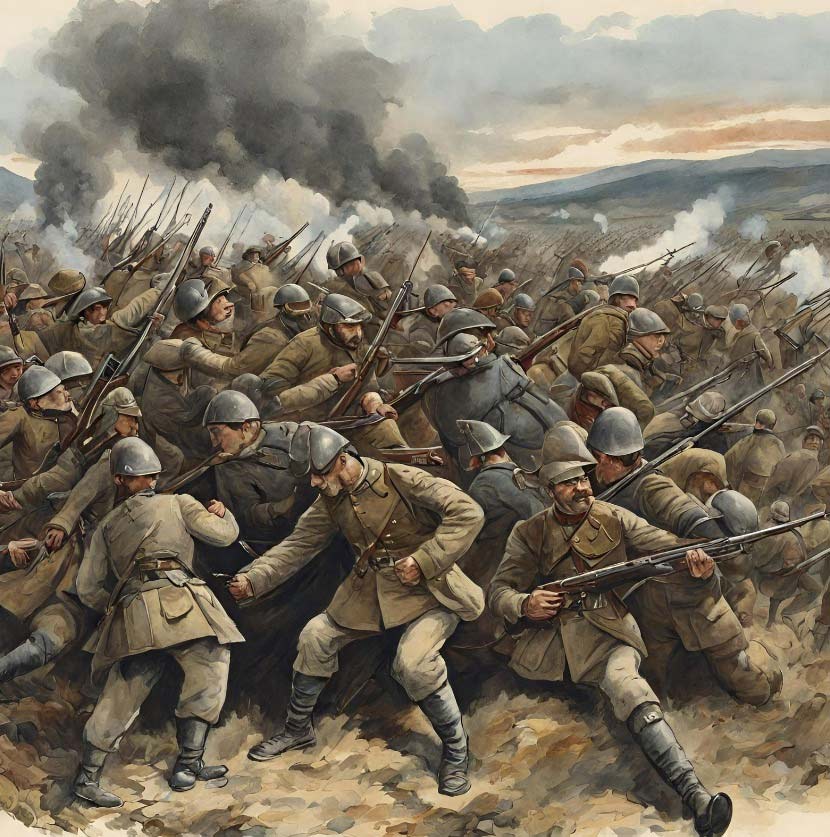Explore the Balkan Wars (1912-1913) in detail: causes, key players, decisive battles, and their lasting impact on Europe and the world.
The Balkan Wars of 1912-1913 represent a pivotal moment in European history, reshaping the political landscape of Southeast Europe. These wars were fought over territorial disputes among the nations of the Balkan Peninsula and were marked by a complex web of alliances, nationalistic fervor, and geopolitical interests. They set the stage for larger conflicts and significantly affected the balance of power in Europe. This article delves into the intricate causes, main players, significant battles, and lasting consequences of the Balkan Wars.

What were the reasons for the Balkan Wars (1912-1913)?
The roots of the Balkan Wars lie in a tangle of nationalism, imperialism, and a power vacuum left by the declining Ottoman Empire. Nationalistic aspirations among the Balkan states of Serbia, Greece, Bulgaria, and Montenegro led to a desire for territorial expansion at the expense of Ottoman territories. The rise of these national sentiments coincided with the weakening of the Ottoman Empire, which had controlled much of the region for centuries. Furthermore, the Austro-Hungarian and Russian Empires saw the Balkans as a sphere of influence and supported various nationalist movements to further their interests. The complex web of alliances and ententes among the Great Powers of Europe also played a critical role. The immediate spark came when the Young Turk Revolution in the Ottoman Empire led to a perceived moment of weakness, prompting the Balkan states to form the Balkan League and assert their claims.
Who was involved in the Balkan Wars (1912-1913)?
The Balkan Wars involved a multitude of actors, each with their vested interests. The primary nations were the Balkan League members: Serbia, Bulgaria, Greece, and Montenegro, united against the common enemy, the Ottoman Empire. These states sought territorial expansion and independence from Ottoman rule. Their ambitions were also fueled by the support and sometimes manipulative diplomacy of the Great Powers, particularly Austria-Hungary, Russia, Germany, and France. Each power had its strategic interests in the region, influencing the course of the conflict. Ethnic and religious groups within the contested areas also played crucial roles, often being the victims of atrocities or the fuel for nationalistic fervor.
The leaders of the Balkan Wars (1912-1913)
Key figures emerged during the Balkan Wars, shaping the course of the conflict. Notable leaders included King Peter I of Serbia, who sought to expand Serbian territory and influence; Tsar Ferdinand of Bulgaria, driven by dreams of a Greater Bulgaria; King Constantine I of Greece, a vital player in expanding Greek territories; and Prince Nicholas of Montenegro, eager for his nation’s recognition and expansion. On the Ottoman side, leaders like Enver Pasha played significant roles. These leaders were characterized by their nationalist zeal and military strategy. Their actions and decisions had lasting impacts, setting the stage for future conflicts and shaping the national identities and borders of their respective countries.
Was there a decisive moment?
The decisive moment leading to the Balkan Wars was the formation of the Balkan League in 1912. This alliance between Serbia, Bulgaria, Greece, and Montenegro was aimed at the division and conquering of Ottoman territories in Europe. The league’s formation was a direct challenge to Ottoman sovereignty and showcased the collective military might of the Balkan states. The success of the Italian war against the Ottomans in Libya (1911-1912) further emboldened the Balkan states, as it demonstrated the weakening grip of the Ottoman Empire over its territories. This alignment of intent, coupled with increasing nationalist sentiment and strategic alliances, set the stage for a coordinated attack that marked the beginning of the first Balkan War.

What were the major battles?
The Balkan Wars were marked by several key battles:
- Battle of Kumanovo (October 1912): A significant Serbian victory against the Ottoman Empire, leading to the capture of Skopje.
- Siege of Adrianople (1912-1913): Conducted by Bulgarian and Serbian forces, resulting in a crucial victory and the capture of a vital Ottoman city.
- Battle of Lule Burgas (October-November 1912): The largest battle of the first Balkan War, where the Bulgarian army defeated the Ottomans but at a high cost, leading to subsequent operational difficulties.
- First and Second Battles of Çatalca (November 1912 and March 1913): The Ottomans managed to halt the Bulgarian advance toward Istanbul, marking a limit to the success of the Balkan League.
- Battle of Bregalnica (June 1913): During the Second Balkan War, Serbian and Greek forces decisively defeated Bulgaria, leading to the latter’s loss of most of the territory it had gained in the first war.
These battles, marked by heavy casualties and significant territorial changes, reflect the intensity and scale of the conflict. The leaders involved, such as King Peter I of Serbia, Tsar Ferdinand of Bulgaria, and others, played critical roles in these battles, leading their forces and shaping the strategies that defined the wars.
Was there a turning point?
The turning point in the Balkan Wars was the Second Balkan War in 1913. Following the initial successes against the Ottoman Empire, disputes over territory led to conflict among the former allies. Bulgaria, dissatisfied with its share of the spoils, attacked its former allies Serbia and Greece. This resulted in the Treaty of Bucharest, where Bulgaria lost most of the territories it had gained in the First Balkan War. This internal conflict shifted the balance of power and set the stage for future alliances and conflicts, particularly the looming First World War. It also demonstrated the fragile nature of alliances based on mutual enemies rather than shared long-term goals.
The consequences of the Balkan Wars (1912-1913)
The Balkan Wars significantly reshaped the map of Southeast Europe, leading to the expansion of Serbia, Greece, and Montenegro at the expense of the Ottoman Empire and Bulgaria. The wars also saw the emergence of Albania as an independent nation. The brutal nature of the conflicts, characterized by atrocities against civilian populations, set a grim precedent for the 20th-century warfare. The redrawing of borders and the creation of new states intensified nationalistic sentiments, sowing seeds for future conflicts. On a broader scale, the Balkan Wars weakened the Ottoman Empire, contributing to its eventual collapse in World War I, and altered the balance of power among the European Great Powers, setting the stage for the larger conflict that was to engulf the continent just a year later.
The Balkan Wars were a critical turning point in European and world history, demonstrating the destructive potential of nationalist fervor and territorial ambition. The wars resulted in significant territorial, political, and human costs, setting the stage for the larger and more devastating First World War. They serve as a reminder of the complex interplay of domestic politics, international relations, and military strategy in shaping the course of history. Understanding these conflicts provides valuable insights into the causes and consequences of wars, the challenges of nation-building, and the enduring impact of historical events on current international relations.
Back to the Wars section